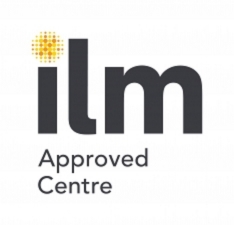ILM Level 4 Certificate in Leadership and Management Course Outline
Total Credit Value – 13
Guided Learning Hours – 19
Unit 8605-406: Developing Your Leadership Styles
Total Credit Value – 4
Guided Learning Hours – 10
Module 1: Understand the Outcomes of Effective Leadership
- Evaluate the Importance of Performance and Engagement with Followers in an Organisation
- Defining Leadership
Module 2: Be Able to Assess Own Leadership Styles
- Review Own Leadership Styles by Using a Diagnostic
- Assess the Effectiveness of Own Leadership Styles
Module 3: Understand the Implications of Own Leadership Styles for Self and for Leadership Within Own Organisation
- Impact of Changes in the Situation on the Effectiveness of the Adopted Style
- Leadership Profiling
Module 4: Be Able to Assess Own Leadership Behaviour, in Terms of the Factors Which Determine Effective Leadership
- Factors Which Impact on Leadership Effectiveness
- Assess Own Leadership Behaviour in Terms of These Factors
Module 5: Understand How to Develop Own Leadership Style and Effectiveness
- Produce an Action Plan for Developing Own Leadership Style and Effectiveness
- Benefits of Implementing the Action Plan
- How You Will Monitor and Evaluate the Action Plan?
Unit 8605-408: Management Communication
Credit Value – 4
Guided Learning Hours – 18
Module 6: Understand the Importance of Effective Communication in Management
- Importance of Effective Communication in Management
- Communication Process
- Relevance of the Communication Cycle for Effective Communication
- Importance of Selecting an Appropriate Tone and Language
- Importance of Level of Formality
- Effectiveness of Verbal and Written Communication Methods
- Evaluate Communication Skills as a Manager
Module 7: Be Able to Develop Effective Communication Skills as a Reflective Manager
- Developing Effective Communication Skills as a Reflective Manager
- Tools for Evaluating Communication Skills
- Importance of Feedback on Communication Skills
- Identifying Strengths and Areas for Improvement
- SWOT Analysis
- Personal Development Planning
Unit 8605-300: Solving Problems and Making Decisions
Total Credit Value – 2
Guided Learning Hours – 9
Module 8: Know How to Describe a Problem, Its Nature, Scope, and Impact
- Problem, Its Nature Scope, and Impact
- Ways to Recognise, Define, Investigate, and Analyse Problems
- Objective Setting in Relation to Problem
- Brainstorming, Problem Solving, and Creative Thinking Techniques
Module 9: Know How to Gather and Interpret Information to Solve a Problem
- Gather and Interpret Information to Identify Possible Solutions to a Problem
- Prepare a Summary of the Options Providing Facts and Evidence
- Difference Between Data and Information
Module 10: Know How to Evaluate Options to Make a Decision
- Importance of Adequate and Relevant Information for Effective Decision-Making
- Identification of What Information is Relevant to Specific Decisions
- Decision Making Techniques
Module 11: How to Plan, Monitor, and Review the Implementation and Communication of Decisions?
- Plan the Implementation and Communication of the Decision
- Monitoring and Review Techniques to Evaluate Outcomes
Unit 8605-303: Planning and Allocating Work
Total Credit Value – 2
Guided Learning Hours – 9
Module 12: Know How to Plan Work in the Workplace
- Identify Organisational Targets Relevant to the Team
- Set Smart Objectives for the Team to Achieve the Targets
- Use a Technique to Plan to Achieve the Objectives
- Explain How to Monitor and Control a Planned Activity
Module 13: Know How to Allocate Work to Team Members
- Identify Resources Required to Complete a Planned Activity
- How to Allocate Work to Team Members?
- How to Assess and Support Team Performance in Achieving Objectives?
Module 14: Understand How to Improve the Performance of a Team in Delivering to Plan
- Possible Cause of Variance from a Planned Activity
- How to Involve Team Members in Identifying Ways to Improve Performance to Meet Objectives?
- Techniques for Identifying Causes of Underperformance
Unit 8605-314: Understanding Discipline in the Workplace
Total Credit Value – 1
Guided Learning Hours – 5
Module 15: Understand the Legal Aspects and Organisational Policy Relating to Discipline in the Workplace
- Legal Aspects of the Disciplinary Process
- Organisation’s Employment Policies and Procedures that Could Guide the Manager in Dealing with Disciplinary Issues
Module 16: Understand How to Monitor Discipline in the Workplace
- Purpose of Disciplinary Procedure
- Interpersonal Behaviour and Support Skills Required by a Manager to Monitor Discipline in the Workplace








































 Back to course information
Back to course information




 If you wish to make any changes to your course, please
If you wish to make any changes to your course, please

